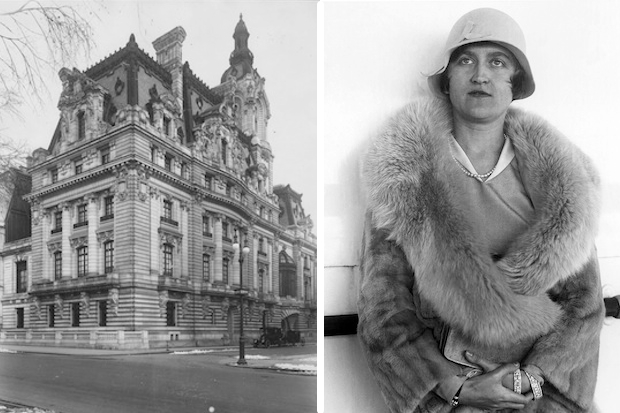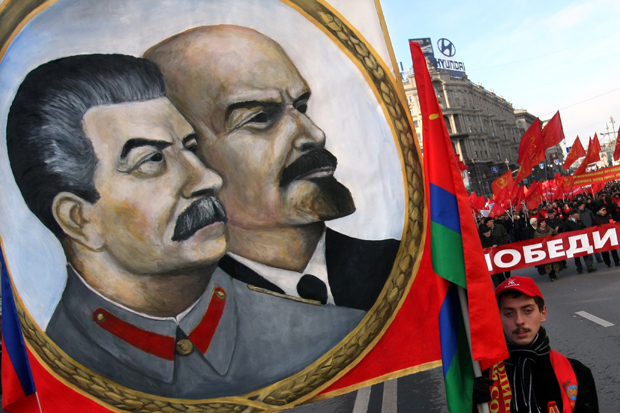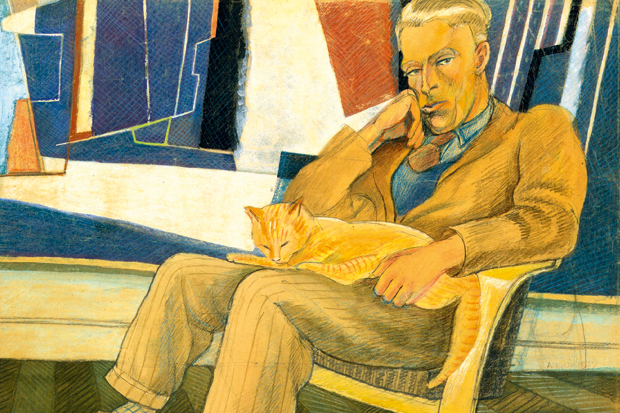It is difficult to know whether Clive Aslet intended a comparison between his debut novel, The Birdcage, set in Salonica during the first world war, and Sebastian Faulks’s similarly titled Birdsong. Whilst Faulks’s novel sits comfortably within the generally accepted narrative that the first world war was an unmitigated disaster, with lion-like Tommies led by donkey-like officers, Aslet has written what is effectively a panegyric to the officer class. Indeed, so casually heroic is every officer in the book it is almost as though Richard Attenborough’s version of Oh! What a Lovely War never existed.
The Birdcage begins with the almost Wodehouse-inspired scene of the first ascent in a balloon of Lieutenant Winnington-Smith, a failed aeroplane pilot and now an official war artist. Like every character in the book, Winnington-Smith has a nickname, ‘Winner’, and on his balloon flight to draw the enemy lines for his proposed painting he is accompanied by Captain Southall, or ‘Sunny’, commander of the Balloon Section. An encounter with the German ace fighter pilot ‘Earwig’ puts paid to this jolly jape and Winner lands in a field hospital run by redoubtable British women. There he inevitably falls in love with one of the nurses, Elsie.
At this point one imagines Aslet might have written a kind of first world war romcom, and to some extent the novel follows this course. Winner discovers Elsie loves him too, but on an ambulance run to the front line she disappears, prompting Winner to search for her. It is only when this storyline peters out that the real purpose of Aslet’s book is revealed. In turn each of the officers faces a life and death adventure, and Aslet ensures they each acquit themselves honourably and heroically. They are, after all, British officers. Even ‘Otter’, the tiresome quartermaster obsessed with planting a flower garden, becomes an unlikely companion to the self-confessed spy ‘Simple’ on a mission to locate the source of illicit petrol feeding an Austrian U-boat blockading Salonica.
Aslet is an entertaining writer, and there is no doubt that this first novel proves he can tell a tale very engagingly. But there comes a point where one longs for more depth of character. Rarely is there more than a fleeting moment of self-reflection, or a questioning of motive. In the world Aslet has created characters tend to correspond to type, so that British officers are always honourable, working-class Tommies are virtually invisible, the French are obsessed with sex and eating frogs, assorted Greeks, Jews, gypsies and Turks are handsome but duplicitous, and the mountain Serbs are heroic but murderously ruthless.
Perhaps this reflects a historic British view of the world accurately, but it is strangely out of time now. The inclusion of a more sardonic character to challenge this Ripping Yarns vision of British derring-do would have made for a more substantial book, but also for one far more serious. In the absence of that, what we have is an entertaining novel that is an ideal summer holiday read.
Got something to add? Join the discussion and comment below.
Get 10 issues for just $10
Subscribe to The Spectator Australia today for the next 10 magazine issues, plus full online access, for just $10.
Available from the Spectator Bookshop, £16.95, Tel: 08430 600033
You might disagree with half of it, but you’ll enjoy reading all of it. Try your first month for free, then just $2 a week for the remainder of your first year.














Comments
Don't miss out
Join the conversation with other Spectator Australia readers. Subscribe to leave a comment.
SUBSCRIBEAlready a subscriber? Log in